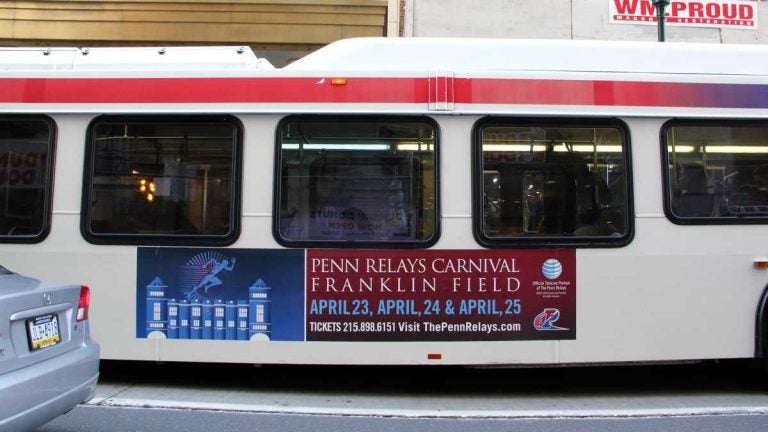Judge could force SEPTA to end ban on political ads
A fed. judge may force SEPTA to scale back its effort to keep politically charged advertisements off its bus shelters and vehicles when he issues a decision later this month

(Emma Lee/WHYY)
This story originally appeared on PlanPhilly.
—
A federal judge may force SEPTA to scale back its effort to keep politically charged advertisements off its bus shelters and vehicles when he issues a decision in a free speech case later this month.
U.S. District Judge Michael M. Baylson didn’t say exactly how he’ll rule on the lawsuit filed by the ACLU of Pennsylvania on behalf of the Center for Investigative Reporting or CIR.
SEPTA refused to run a series of ads for the news organization’s investigation of racial disparities in mortgage lending, prompting the suit. [Disclosure: WHYY co-published a CIR article on disparities in Philadelphia mortgage lending and airs CIR’s radio show, Reveal.]
But at a hearing Thursday afternoon, Baylson said he was considering whether to order SEPTA to end its ban on political ads and to require the transit agency to negotiate with would-be advertisers whose ads it rejects. He said he’ll make a decision by the end of November.
The dispute centers on an advertising policy SEPTA adopted in 2015 after a court forced the transit agency to run offensive ads attacking Muslims and trying to link them with Hitler. Those messages were deemed constitutionally protected free speech. SEPTA is a government agency, and the First Amendment doesn’t allow the government to censor speech except in limited circumstances.
SEPTA said its policy doesn’t violate the law because it rejects all ads in several categories and doesn’t discriminate based on their content or political positions. The agency said CIR ran afoul of the policy’s blanket ban on ads that are “political in nature” or express a “viewpoint on matters of public debate about economic, political, religious, historical or social issues.”
In a statement earlier this year, the agency said its policy “is constitutionally sound and necessary to ensure that our vehicles and stations do not become forums for political debate — and distract from our core mission of providing safe and reliable public transportation in an environment that is welcoming to customers and employees.”
But the attorneys arguing the case for CIR contend that SEPTA rejected the ads based on “hopelessly vague” criteria that have led to discrimination based on content. For example, they say the agency has allowed bank advertisements that say the financial institutions are equal-opportunity housing lenders. That’s the same issue that was investigated by the CIR article.
Attorney John S. Stapleton, a member of CIR’s legal team, said the issue is particularly important in light of the polarized political environment and extends to entities beyond news organizations.
“In these serious times, really now more than ever, it’s important that courts maintain the vitality of the First Amendment against the mission creep of government censorship,” he said after the hearing.
An attorney for SEPTA told Baylson the agency would not object to certain modifications to the language of the advertising policy, but Stapleton said the suggested changes would not fully address the censorship problem.
He and other attorneys for CIR said deleting the “public debate” provision of SEPTA’s policy would not necessarily force the agency to once again accept objectionable ads, as the policy gives SEPTA many other grounds to reject them. The policy contains 22 criteria of prohibited messages.
Rather than change its policy, SEPTA could also decide to stop accepting ads, cutting off a source of $16 million in revenue a year.
WHYY is your source for fact-based, in-depth journalism and information. As a nonprofit organization, we rely on financial support from readers like you. Please give today.







